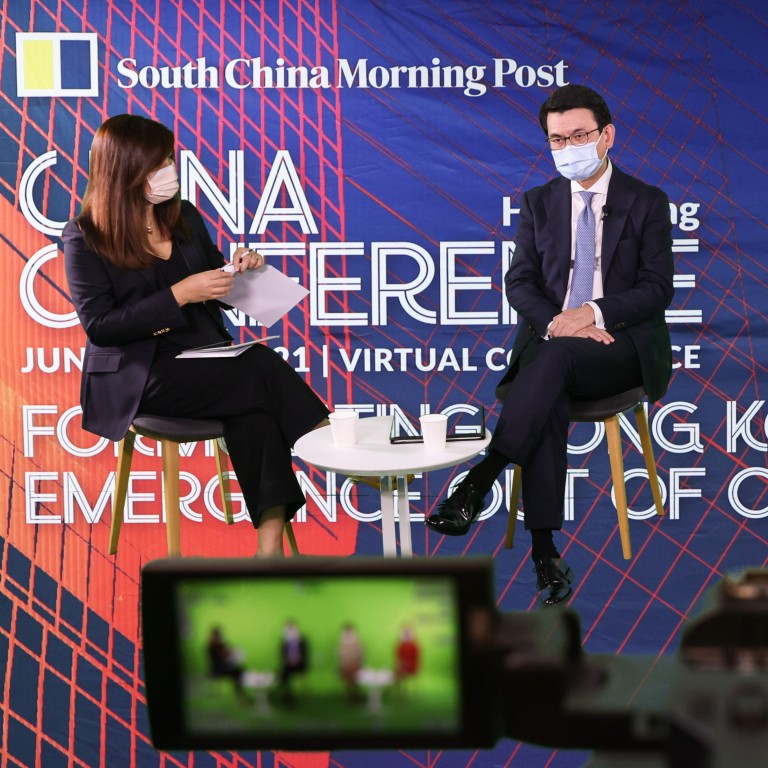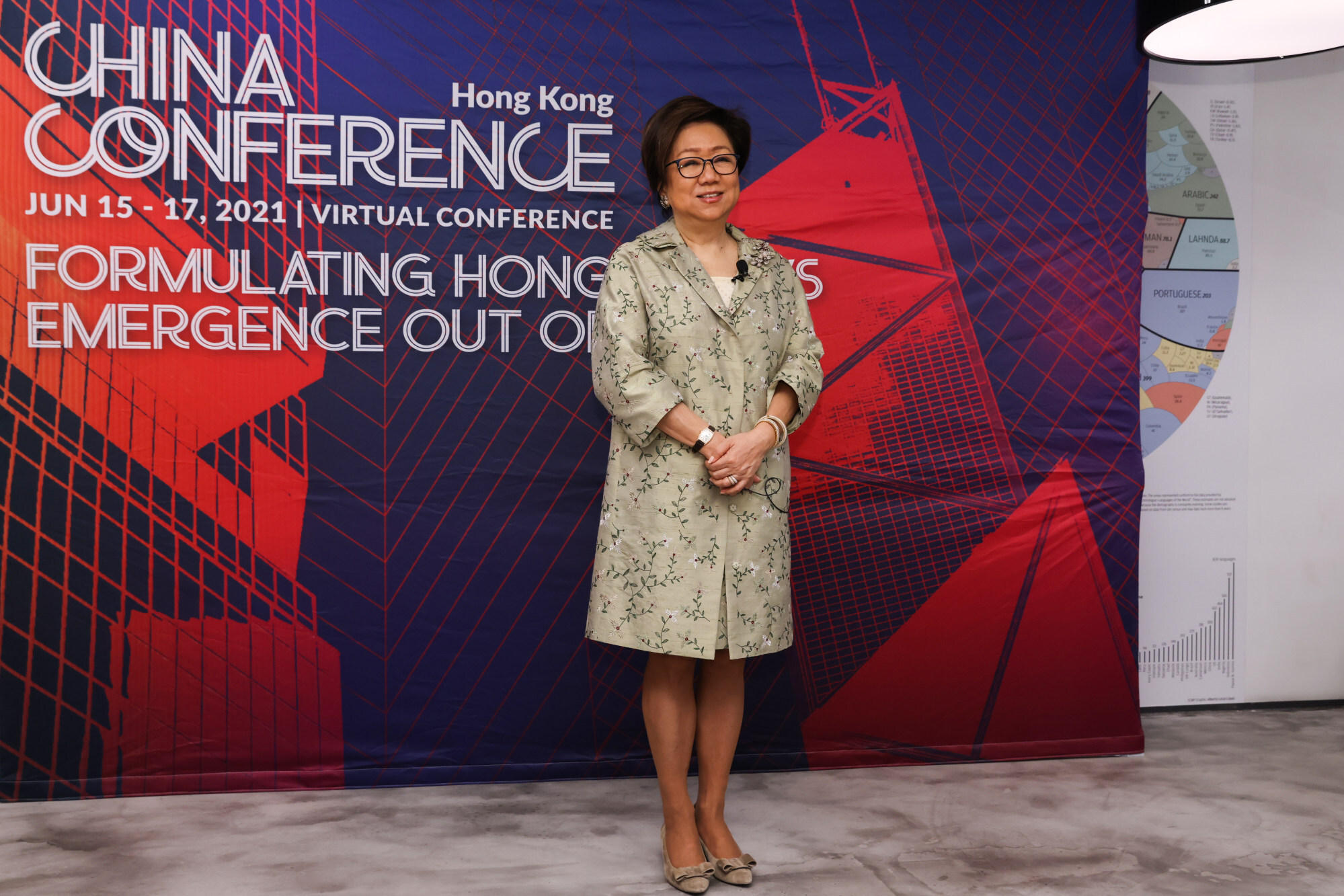
Coronavirus: Hong Kong considering easing quarantine restrictions for the fully vaccinated, commerce chief tells China Conference
- Commerce secretary Edward Yau tells conference attendees city actively looking for ‘leeway’ in ways to loosen rules for those with two jabs, pointing to existing ‘vaccine bubble’ as example
- Inoculation, which has been moving at a sluggish pace in Hong Kong, ‘one of the keys’ to moving beyond pandemic, he says
“We are also thinking, perhaps with full vaccination – two doses plus 14 days – [the city would be] better protected with higher community participation, and we can actually let go of some quarantine [measures],” he told the conference.
The relaxation of restrictions for those who were fully vaccinated, Yau said, could apply to international and cross-border travel as well as entering some premises in Hong Kong.
“[We are] trying to see if we can have any leeway,” he said.
“When we talk about bilateral travel arrangements, we have imposed vaccination requirements for our own people as a trade-off for quarantine requirements. That concept has been built,” he said, referring to a since-delayed air travel corridor planned with Singapore.
“I believe that will eventually be one of the keys to unlocking certain activities both locally and also crossing borders.”
In Hong Kong, 23.8 per cent of about 7.5 million residents have received at least one shot, while 16.2 per cent had taken both as of Tuesday.
On Tuesday, the city confirmed two imported coronavirus cases, involving two domestic helpers arriving from Indonesia, bringing the local infection count to 11,880, with 210 related deaths.
Yau said the government had to take prudent precautions to guard against the pandemic, and hoped officials were “not cutting corners”.
“Any decisions must be for protecting the public health, and also the community as a whole as we are going forward. It’s not for taking a short-term advantage,” he said.
At present, fully vaccinated people have been subject to a shorter quarantine period when arriving in Hong Kong from low- to high-risk areas, with the time in some cases reduced from 21 days to 14.
Plans for a long-awaited travel bubble between Hong Kong and Singapore are set to be reviewed early next month. The scheme was slated to launch last November but postponed after a surge in cases in Hong Kong. It was pushed back to May 26, but derailed again when the number of cases began to rise in Singapore.
Other China Conference speakers also called for reopening the city’s borders, saying Hong Kong would lose its competitive edge if it failed to reconnect with mainland China and the world at large.

Laura Cha Shih May-lung, chairwoman of Hong Kong Exchanges and Clearing, said travel restrictions with the mainland had undermined the city’s chances of expanding its reach into China’s expanding domestic market.
“Time is running out,” she warned. “I know that there are other markets … [that have continued] to bang on the doors of their Chinese counterparts and Chinese clients, and we have not been able to do that.”
Despite the Covid-19 health crisis and an exodus of some Hongkongers to other countries, Cha said she was upbeat about Hong Kong’s future.
“With all these exciting things happening out there, we must seize the opportunity and utilise our talent, that’s an area we need to replenish,” she said.
“The key is to make Hong Kong an attractive place to stay, to live and to do business. I think that the government is doing [that] … But beyond that [Covid-19], I am positive about Hong Kong’s future.”
Tara Joseph, president of the American Chamber of Commerce in Hong Kong, also said pressure was mounting for the city to reconnect with the world.
“Hong Kong has a limited amount of time to really get itself into a place … [as] a city of global connectivity and a major international finance centre for the mainland. We really can’t afford to waste much more time,” she said.
“I understand the pressure the government must feel, but I hope the government can really see and realise the pressure that the business community is under to get going and reset Hong Kong.”

